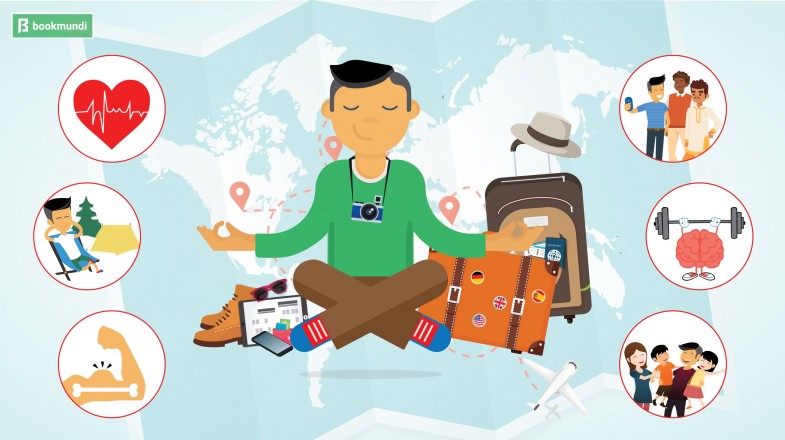
Researchers estimate that twenty to thirty percent of life expectancy is genetic, and the rest is a combination of genes and lifestyle. However, the length of life of the average person hasn't changed much in the past few decades, despite the fact that the number of years that people live is increasing. A variety of factors can impact a person's lifespan. Exercise and healthy eating are two of the most important factors.
Genetics is still in the early stages of research, but it has been proven that higher lifespan can be linked with nutritional requirements. The study also revealed that 25 percent of variance in human life span is genetic, and that many genes are involved in aging. While not completely understood, three genes have been linked with longevity. These genes include the APOE genetic, the FOXO3 Gene, and the CETP Gene. Although these genes don't seem to play a role in determining one's lifespan, they are known to act together.

The average American lives for around eighty to eighty year. Asian-Americans are on average nearly one hundred years older than Americans. Black Americans have the shortest lifespans, but they tend to have a poorer health status. Also, men are more likely to develop heart disease, diabetes, and cancer than their white counterparts. However, women live longer than men. While there are theories about the reasons for their longer life span, they are all attributed to greater health and fewer physical activities.
Lifestyle factors are more important than genetics. A person's lifestyle, including the type of food and environment they live in, has a major impact on their life expectancy. The first seven decades of life are the most important time when lifestyle matters more than genes. As they age they are more likely not to develop many age-related ailments and remain healthy.
The length of life span is influenced by genetics, environment, and lifestyle. Some people with longer lifespans are healthier than their peers. The length of their lives is determined by the environment and lifestyle they live in. The diet and nutrition of those living in poorer areas can also have an impact on their longevity. While these factors can be important, they don't always cause longevity. Healthy eating habits are key to prolonging your life. People who eat lots of fresh fruits and vegetables live longer.

Scientists have researched people who live to their nineties, and even into their nineties. These individuals tend to have the exact same lifestyles. They don’t smoke, aren’t overweight and have no other health issues. But, they are more likely not to smoke. They are also able to cope with stress. Moreover, they tend to be female. And it's important to note that healthy older adults are more likely to live longer than their counterparts.
FAQ
Do Men Need A Gym Membership?
Men do not need a gym membership. A gym membership will make your money more valuable.
Most gyms offer free trial memberships, allowing you to try out the facilities before paying any fees.
You can use the gym whenever you like, and it won't cost anything. You can cancel your membership at any time, no matter how much you like it.
Is there any benefit to doing yoga?
Yoga has been around since ancient times, and it has recently gained popularity. Celebrities, as well as everyday people who are looking to stay fit and healthy, have made yoga a hugely popular choice.
Yoga is great because it strengthens your muscles as well as stretches them. It calms you down and relaxes you.
Yoga is more focused on breathing than other forms of exercise.
For balance and flexibility, there are many poses you can do.
Is Cardio Better Than Strength Training?
Both are equally beneficial. If you want to increase muscle mass faster, cardio is the better option.
Cardio burns more calories in a minute than strength training and more fat.
Strength training helps build muscle mass. But it takes longer than cardio to accomplish this goal.
Is it true that overeating protein causes kidney stones?
Protein helps maintain healthy bones and tissue. However, too much protein can result in calcium excretion through the urine. This can cause kidney stones.
It is important to keep in mind that not everyone will develop kidney stones if they consume more protein than 2 grams per kilogram (2.2lbs). High amounts of protein can be consumed by some people without causing kidney stones.
You can prevent kidney stones by watching your sodium consumption. Sodium is important for maintaining the body's water balance. Too much sodium can lead to kidney stones.
You may also want to reduce your protein intake in the event of kidney stones. About half of adults' daily caloric intake is made up of protein. A reduction in protein intake will likely result in weight loss.
If you do decide to eat more protein, don't go overboard. You should aim to consume less than 20% of your total calories from protein.
What is the best way to train?
It all depends on what you're looking for. You should start with heavy weights if your goal is to build muscle mass. Next, you can move onto cardio. Then if you want to lose weight, go from cardio to strength training.
Start with cardio if you only want to lose fat. Then add strength training after.
You should do cardio last if your goal is to increase muscle mass. This stimulates growthhormones, which helps build muscle mass.
Eat before you go to the gym. You will be able to give your muscles more fuel so they can work harder. It makes you feel better when you exercise.
Statistics
- Cardmembers earn 5% Back at Amazon.com with a Prime Credit Card. (amazon.com)
- An estimated calorie range for moderately active adult males falls between 2,200 to 2,800 calories per day, depending on age. (eatright.org)
- According to the American Academy of Dermatology (AAD), men over 50 are at a heightened risk of developing it. (healthline.com)
- By John Thompson Take a whopping 38% off a set of PowerBlock Pros. (menshealth.com)
- The PRS enabled risk stratification for overall prostate cancer and lethal disease with a four-fold difference between men in the highest and lowest quartiles (HR, 4.32; 95% confidence interval [CI], 3.16-5.89). (pubmed.ncbi.nlm.nih.gov)
External Links
How To
What food is the healthiest for men?
Men should consume five portions of fruits and veggies per day. They also need to limit red meat consumption and avoid fast foods.
Fruits and veggies are packed with antioxidants that protect against cancer, cardiovascular disease, and other diseases.
Vegetables include broccoli, cauliflower, carrots, spinach, tomatoes, peppers, cucumbers, lettuce, mushrooms, etc.
High in fiber and protein, beans and peas also have high levels of protein.
The best sources of omega-3 fat acids are nuts and seeds. Essential for hormone production and brain function, omega-3 fatty acids are vital.
Fish is another excellent source of omega-3s. Mercury is more abundant in fish than in most other meats. However, fish liver oil does contain fewer toxins.
For normal growth and development, Omega-6s are required in vegetable oils such as soybean, sunflower, safflower and cottonseed oils.
Poultry is a good source of lean protein. Chicken breast is one of the healthiest meats.
Lean beef is low on saturated fats, cholesterol, and other harmful substances. You should limit your intake of red meat as it can increase your risk for prostate cancer.
Avoid processed meats such as sausage and hot dogs. These foods contain added nitrates, which can lead to cancer.
No doubt exercise is crucial for good health. But what if you're already working out regularly? Is there anything else you can do to maintain or improve your physical condition?
Yes! There are many things you can do to get the best out of your workouts. These are some ways to make your workouts more enjoyable.
Begin slowly. Injure yourself if your first session is too intense. You should start at a pace that you are comfortable with and increase your intensity gradually.
Stretch before and after. Stretching helps loosen tight muscles, reduce muscle soreness, and improve flexibility. You can stretch standing up, sitting down, or walking around.
Cool down. This is especially important if you're doing cardio exercises. To ensure that you don't become tired, your body needs to have time to recuperate between sessions. Cool down by walking slowly, taking deep breaths or going for a swim.
Hydrate. Drinking plenty of fluids helps keep you hydrated and reduces muscle cramps. Water is the best choice, but you can also drink sports drinks.
You must eat right. Be sure to eat enough calories each day. Eating regular meals throughout the day will help you stay energized and focused during your workout.
Get some sleep. When you get enough sleep, you'll feel refreshed and ready for your next workout. The best way to heal tissues is through sleep.